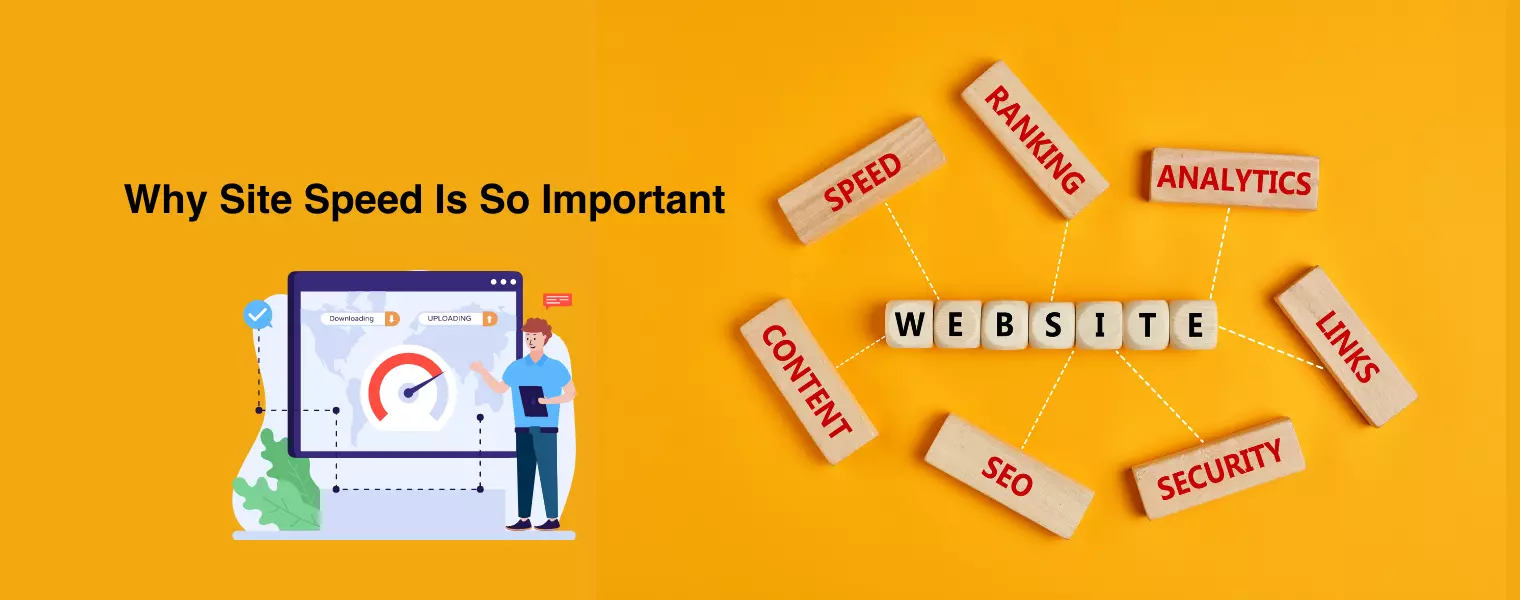
The speed of a website, also called its performance, is the measure of how fast a browser can load fully functional webpages from that site. Websites that load slowly can discourage users, while fast-loading sites tend to attract more visitors and have better conversion rates.
Having a website that loads quickly is crucial for a positive user experience, increased site
traffic, and better SEO rankings. Websites that are optimized for performance have a clear
advantage over slower sites. The impact of site speed on your digital marketing efforts cannot
be overstated. It affects
SEO.
rankings on both desktop and mobile, influences the quality score
of Google ads, and, most importantly, shapes the overall user experience and conversion rates.
Slow websites tend to have lower conversion rates, higher bounce rates, and fewer pages
visited per session. Users are likely to leave a slow-loading site because nobody likes to wait for
a webpage to load. This is especially problematic for businesses with complex conversion
funnels on their websites. When users encounter a slow site while navigating through multiple
steps and pages of a conversion funnel, the drop-off rate increases significantly.
Site speed is a crucial ranking factor, especially on mobile devices. It is a key indicator of a positive user experience. Faster loading times contribute to a better user experience, while slower loading times result in a negative user experience. Users tend to spend more time on faster sites, leading to higher conversion rates and lower bounce rates. Google considers site speed when determining search rankings for these reasons.
It's crucial to ensure you're getting the best possible rate for your keyword bidding by focusing on your quality score in PPC and site speed. A quality score is key for paid media, as it reflects how relevant Google deems your landing page to be for a search term based on user experience. Slow site speed can negatively impact your quality score, affecting your cost per click and position on the SERP. If your site's speed/quality score is low, it's challenging to rank highly on the SERP, and your ads may not even show up. Quality scores play a major role in PPC success.
John Mueller, Google's Senior Webmaster Trends Analyst, recommends websites load in under two to three seconds, with eCommerce sites aiming for even faster load times to retain potential customers.
Many studies indicate that the speed of a website can affect the conversion rate, which is the rate at which users carry out a desired action. Websites that load quickly not only retain more users, but they also have a higher conversion rate compared to slower websites. Some companies have found that even reducing page load time by a small amount of milliseconds can lead to more conversions.
When discussing bounce rate, we are referring to the percentage of visitors who leave a website after viewing only one page. Slow-loading websites tend to have a higher bounce rate, while faster sites have a lower bounce rate. If a page takes too long to load, users are likely to leave. According to the BBC, for every additional second their pages took to load, they lost 10% of their users.
In terms of SEO best practices, site performance is crucial for Google search rankings, especially on mobile devices.
The user experience is negatively impacted by long page load times and slow response times. Users may become frustrated and abandon the site if they have to wait too long for the content to load.
Site speed is essential for a positive user experience, higher SEO rankings, and better conversion rates. Fast-loading sites attract more visitors, keep users engaged, and encourage conversions, while slow sites drive users away, resulting in higher bounce rates and lower traffic. Google's algorithms prioritize site speed, especially on mobile devices, making it a critical factor in search rankings and PPC success. Tools like PageSpeed Insights, Pingdom Speed Test, and GTmetrix can help assess and improve site performance. Overall, optimizing site speed is crucial for maintaining a competitive edge in digital marketing and ensuring user satisfaction. Get in touch with us for more information.
Welcome to DoFort !